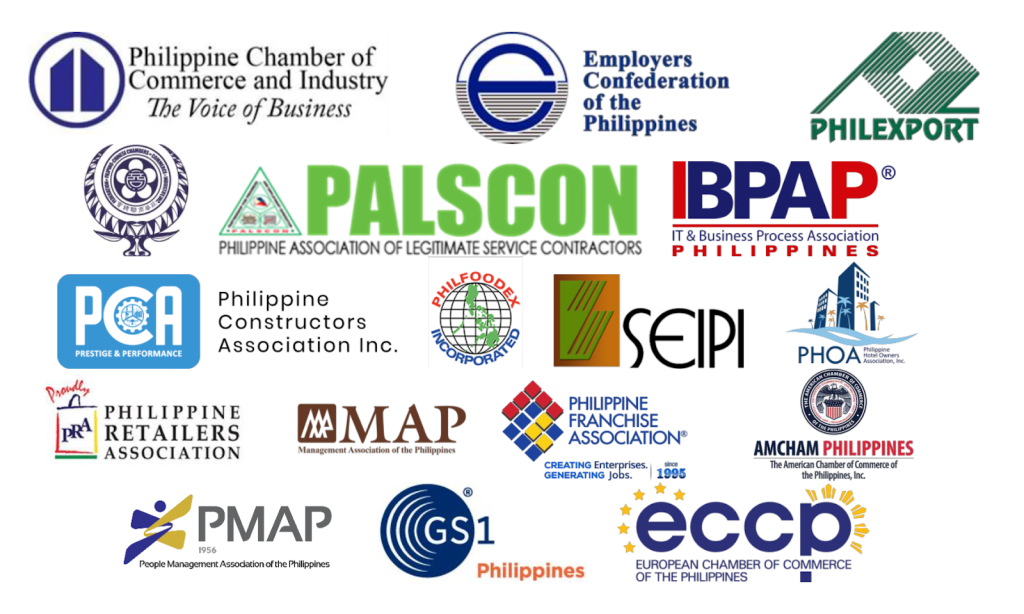
The Philippine Chamber of Commerce and Industry (PCCI), Employers Confederation of the Philippines (ECOP), Philippine Exporters Confederation Inc. (PHILEXPORT), Semiconductor and Electronics Industries in the Philippines Foundation, Inc. (SEIPI), and other business support organizations (BSOs) expressed dissent against the PhP100 daily minimum wage increase.
On 14 February 2024, through an open letter, the BSOs urged the policymakers, particularly the Senate, to adopt a more comprehensive approach to addressing economic inequality, which involves investing more in education, skills development, and infrastructure, as well as creating an enabling environment for business growth and job creation rather than focusing solely on wage increases. It also means passing legislation to solve low productivity, poor governance, excessive regulations, worsening poverty, and serious income inequality, which characterize a country with a large informal sector once and for all.
They further argue that the proposed legislated wage increase, focusing only on the 5 million minimum wage earners, aggravates the plight of the informal sector, comprising 47 million workers who contribute significantly to the economy. This biased approach ignores the diverse occupations within the informal sector, such as agricultural workers, fisherfolks, street vendors, and gig workers, who won’t benefit from the proposed increase. The inflation resulting from this measure would disproportionately hurt their pockets. Another wage hike through legislation following recent adjustments is not the solution. Careless implementation could harm businesses, especially the Micro, Small, and Medium enterprises (MSMEs) still recovering from the COVID-19 aftermath.
Meanwhile, Albay Representative Joey Salceda and Marikina Representative Stella Quimbo turned down the Senate’s proposal for a legislated increase of P100 in the minimum wage. They argue that the wage hike will not have a lasting impact, as prices of goods and services are likely to rise following the increased wage, a sentiment shared by the Department of Labor and Employment (DOLE), which warns of a potential increase in the price of goods and services once the PhP100 minimum wage hike is implemented.
Despite opposition, the Senate approved the P100 minimum wage hike for private sector workers on the third and final reading, with 20 affirmative votes and no negative votes or abstentions. PLM
